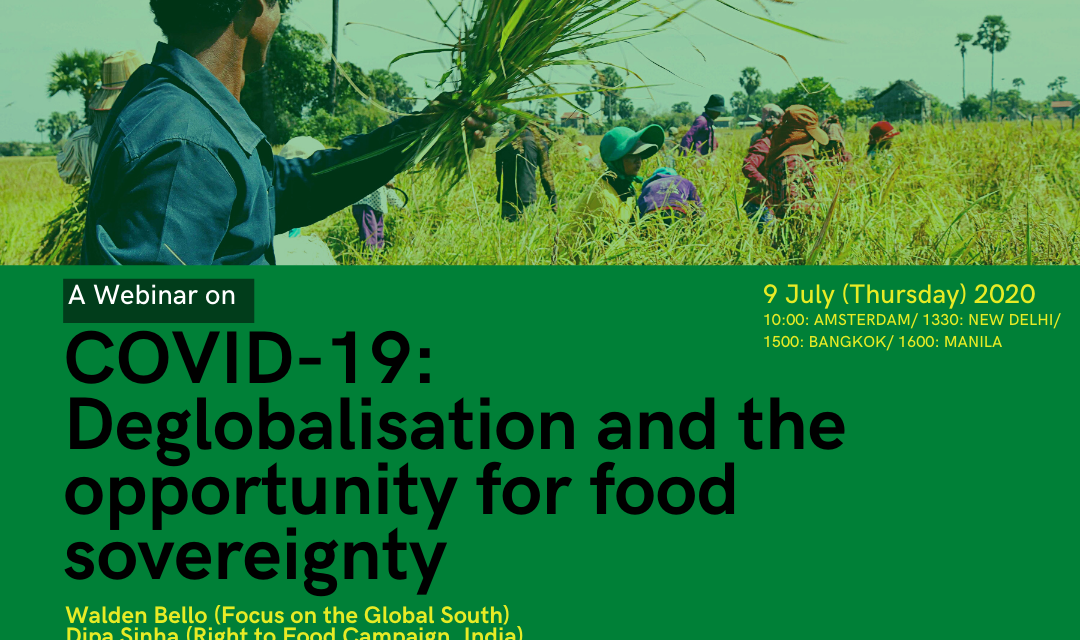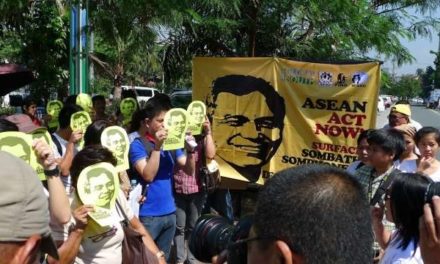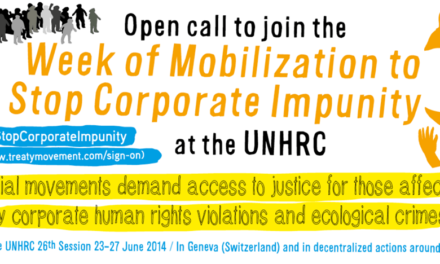COVID-19 has exposed multiple weaknesses and failures of the corporate and finance capital dominated, globalized world we live in. As lockdowns around the world kicked in, global and national supply chains of essential goods and services were disrupted. Decades of neoliberal and austerity policies manifested in the overload and collapse of public health systems in many countries. Measures to contain the spread of the SARS CoV-2 virus underlined the extreme vulnerability of the global food supply chain, which started to break down as millions of agricultural workers—many of who are seasonal migrants—were shut out by closed national borders and bans on domestic travel. Many countries in the south failed in ensuring that millions of citizens, especially itinerant workers, who had lost jobs overnight did not go hungry. Farmers struggled as farmgate prices collapsed and market linkages were broken.
Undoubtedly, making sure that the global food chain is free of disruptions is a short-term priority to address unemployment, and prevent starvation and increased poverty. At the same time, it must be recognized that the global food supply chain is magnifying the Covid 19 fiasco, that its having displaced local and regional food production systems and making countries less self-sufficient in food has made many of them more vulnerable to pandemics and other emergencies.
As governments lift lockdowns to “re-start” economies, we have before us the opportunity to shift food systems away from domination by market forces towards a rights based framework that ensures the right to adequate food in all its social, cultural, economic, ecological and climatic complexity. An especially important measure here is to move food production away from the corporate-controlled globalized food supply chain based on narrow unit cost considerations, to more sustainable smallholder-based localized systems. While, in the short term, global supply chains are needed to ensure people do not starve, the strategic goal must be to replace them, and some measures can already be taken even as the pandemic is at its height. Local supply systems can and must be reactivated and strengthened, and farmers, fishers, herders, food processors and food workers would be eager to do this provided they have the required personal protective equipment, credit, inputs, storage, markets and other supporting systems and infrastructure.
In this webinar, speakers will address how these shifts can happen in the context of Asia. What would deglobalised food systems look like if guided by criteria such as food self-sufficiency, food sovereignty and human rights? What should be the role of the state in supporting food sovereignty? What can peoples’ movements, workers’ unions and other civil society actors do nationally and internationally to ensure that countries do not go back to the neoliberal market dominated pathways that led to and exacerbated the COVID crisis in the first place?
Please register in ADVANCE at the following LINK:
https://us02web.zoom.us/webinar/register/WN_BVZWHa8fQ5eHcdQbprthsQ
Livestream at: https://www.facebook.com/








![[IN PHOTOS] In Defense of Human Rights and Dignity Movement (iDEFEND) Mobilization on the fourth State of the Nation Address (SONA) of Ferdinand Marcos, Jr.](https://focusweb.org/wp-content/uploads/2025/07/1-150x150.jpg)

